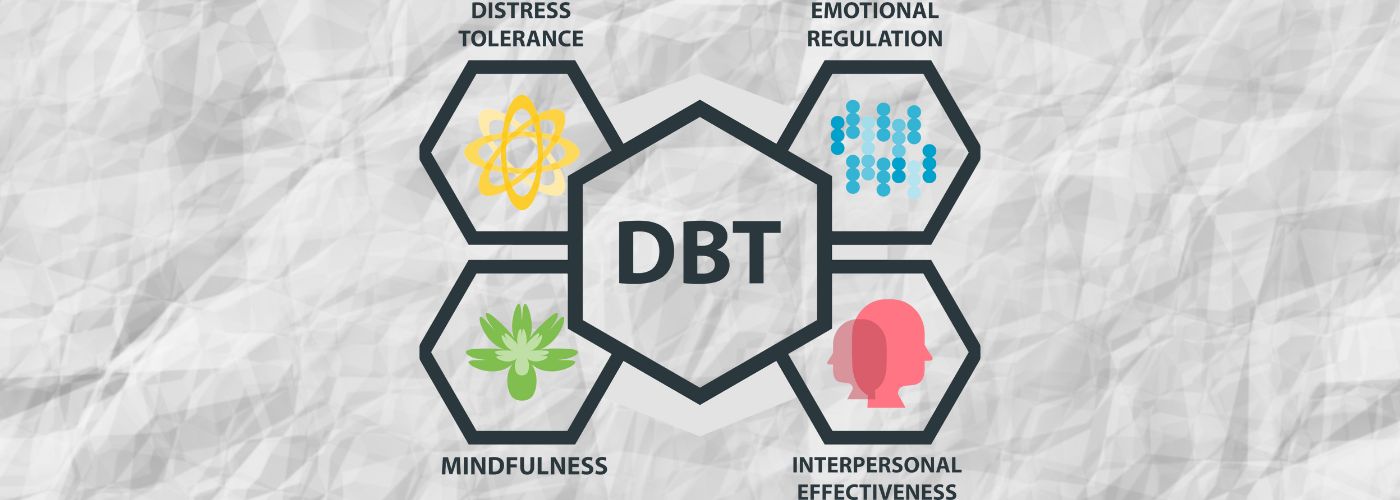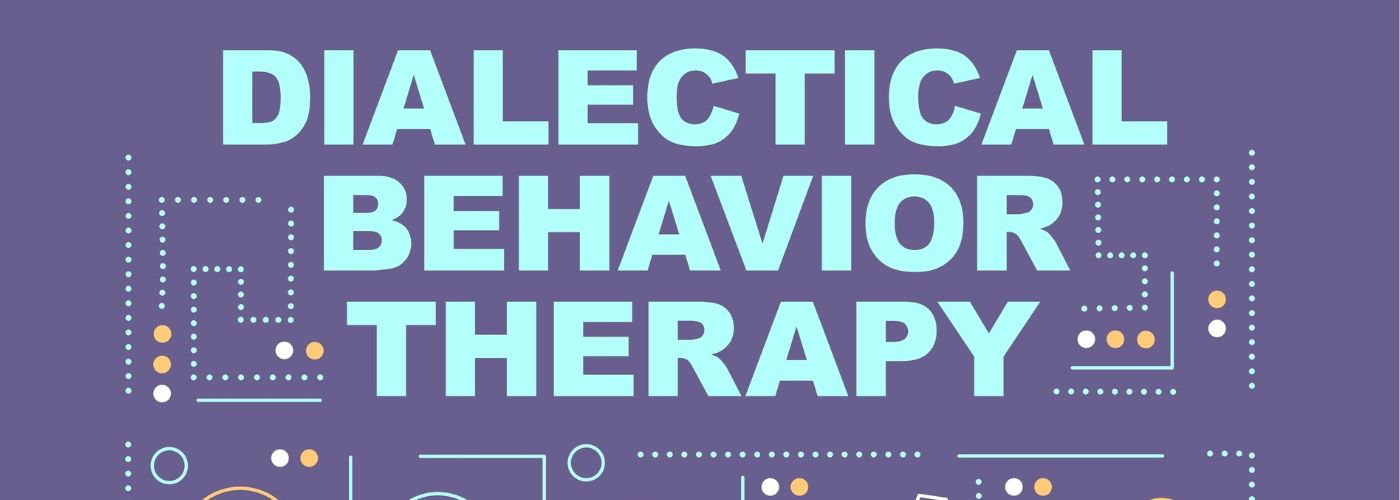Navigating the complexities of mental health can be challenging, and sometimes, finding the right therapeutic approach is crucial. Dialectical Behavior Therapy (DBT) emerges as a beacon of hope for many individuals seeking effective ways to cope with emotional distress and build a more fulfilling life.
In this exploration of the fundamentals of DBT therapy, we’ll delve into its origin, its evidence-based nature, the typical duration of DBT sessions, and considerations to help you determine if DBT is the right fit for you.
Who Invented DBT Therapy
Psychologist Marsha M. Linehan developed DBT therapy in the late 1980s. Dr. Linehan, seeking to address the potential limitations of traditional cognitive-behavioral therapy (CBT) for individuals with chronic suicidal thoughts and self-destructive behaviors, sought to create an approach that would be more effective for this specific population.
Dr. Linehan integrated elements of cognitive-behavioral techniques with concepts from dialectics, a philosophical approach that explores the interconnectedness of opposing forces. The result was Dialectical Behavior Therapy, a therapeutic approach initially designed to address the challenges of borderline personality disorder (BPD).
Over time, DBT has proven effective for a range of mental health conditions, including mood disorders, anxiety disorders, and substance use disorders.
 Is DBT Evidence-Based?
Is DBT Evidence-Based?
Yes, DBT is considered an evidence-based therapy, meaning that its effectiveness is supported by empirical research and scientific studies. The development of DBT involved rigorous testing and refinement to ensure its efficacy, especially in treating conditions like borderline personality disorder (BPD).
Numerous research studies have demonstrated the positive impact of DBT across various mental health conditions, including anxiety, trauma, and other issues. It has been shown to reduce suicidal behaviors, improve emotional regulation, and enhance interpersonal skills. The evidence-based nature of DBT contributes to its widespread acceptance and adoption in the mental health field.
How Long Is DBT Therapy?
As with other forms of therapy, from individual therapy to family therapy, the duration of DBT therapy can vary based on individual needs and the specific treatment plan established between the client and the therapist. Generally, DBT involves a combination of individual therapy sessions, group therapy sessions, phone coaching, and skill-building exercises.
Individual Therapy Sessions: Individual therapy sessions typically occur weekly and focus on addressing personal challenges, setting goals, and developing coping strategies. The duration of each session is commonly around 60 minutes.
Group Therapy Sessions: Group therapy is a core component of DBT. These sessions often last around 90 to 120 minutes and provide a supportive environment for individuals to learn and practice new skills. Group sessions cover mindfulness, distress tolerance, emotion regulation, and interpersonal effectiveness.
Phone Coaching: DBT therapists may offer phone coaching as part of the therapy. This involves clients contacting their therapist for support and guidance between scheduled sessions. The duration of phone coaching interactions is typically brief and focused on immediate issues or crises.
Skill-Building Exercises: Clients are encouraged to engage in skill-building exercises outside of therapy sessions. These exercises may involve practicing mindfulness, using distress tolerance techniques, or applying emotion regulation strategies.
It’s important to note that the duration and frequency of DBT therapy can be adapted to meet the unique needs of each individual. Some individuals may engage in DBT for a specific duration, while others may continue with maintenance sessions to reinforce learned skills and address ongoing challenges.
Is DBT Right For Me?

Determining if DBT is the right fit for you involves considering your specific mental health needs, preferences, and goals. Here are some factors to help you assess whether DBT might be beneficial.
Challenges with Emotional Regulation: If you struggle with regulating your emotions, experiencing intense mood swings, or engaging in impulsive behaviors, DBT’s focus on emotion regulation may be particularly beneficial.
Interpersonal Difficulties: DBT emphasizes improving interpersonal effectiveness. If you face challenges in your relationships, have difficulty setting boundaries, or experience conflict, DBT’s skills in this area may offer valuable insights.
History of Self-Destructive Behaviors: Individuals with a history of self-destructive behaviors, such as self-harm or suicidal thoughts, may find the distress tolerance skills taught in DBT helpful in managing crises.
Desire for Practical Skills: DBT is known for providing practical and tangible skills that can be applied in everyday life. If you prefer a structured approach and value learning-specific tools to navigate challenges, DBT may align with your preferences.
Willingness to Engage in Group Therapy: Group therapy is a central component of DBT. If you are open to participating in group sessions and collaborating with others on skill-building, DBT may be a good fit.
Commitment to Change: DBT requires a commitment to change and active participation in the therapeutic process. If you are motivated to develop coping strategies, enhance emotional well-being, and work towards personal growth, DBT can be a supportive framework.
It’s essential to discuss your considerations and questions with a mental health professional who can provide personalized guidance. A qualified DBT therapist can assess your specific needs and collaboratively determine whether DBT is the right therapeutic approach for you.
The fundamentals of DBT therapy encompass its origin with Dr. Marsha M. Linehan, its evidence-based nature, the flexible duration of sessions, and considerations for individuals contemplating if DBT aligns with their mental health goals. If you’re seeking a structured and effective approach to managing emotional challenges, improving interpersonal relationships, and fostering personal growth, DBT may offer valuable tools and insights on your journey toward mental well-being.

Related Stories
Mindful Practices To Cope With Divorce
Divorce can feel like a storm that turns your life upside down, leaving you lost
Nov
Tips To Identify & Break Cycles of Trauma In Families
The legacy of trauma can haunt families for generations, but it doesn’t have to define
Oct
How To Recognize Avoidant Personality Disorder
Have you ever felt an overwhelming sense of dread at the thought of social interactions,
Sep